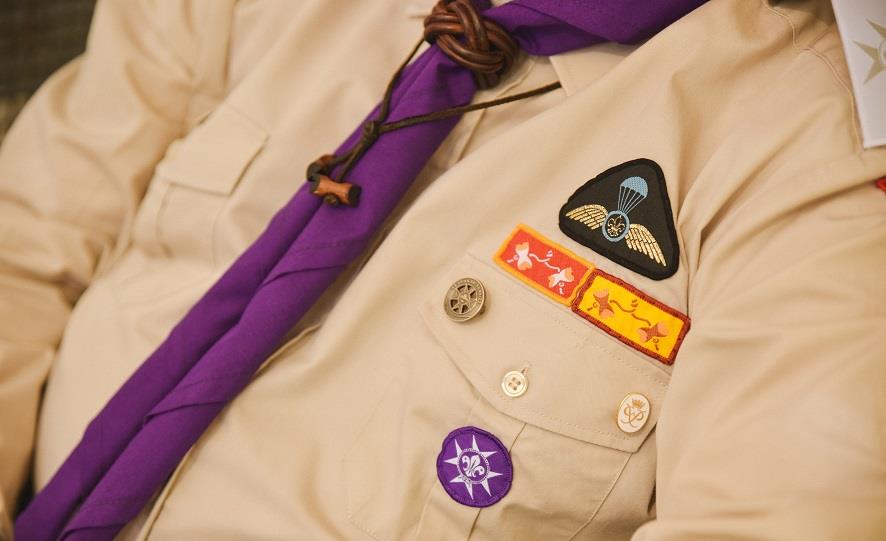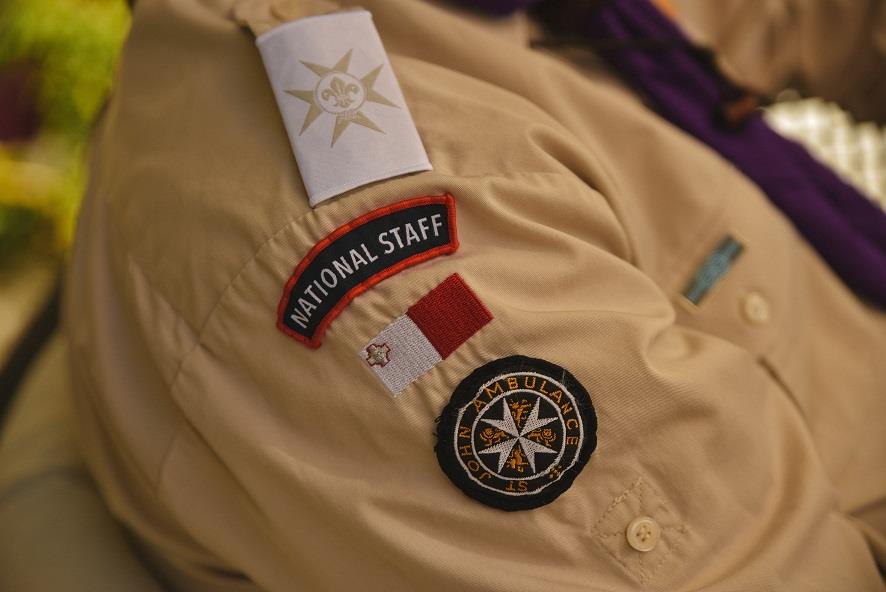“Try and leave this world a little better than you found it” – this is one of the most popular quotes of Robert Baden Powell, the founder and first chief scout of the world-wide Scout Movement. It also happens to be the main vision of The Scout Association of Malta, Nibnu Dinja Ahjar (creating a better world). The Scout Association of Malta is the largest local youth organisations, with over 3,500 active members and focuses on developing and preparing that person to always be prepared and be their best self.
The Malta Independent on Sunday met up and spoke to newly elected chief scout of the Scout Association of Malta, Reuben Lanfranco, who has been part of the organisation since he himself was a cub scout. Lanfranco spoke to Giulia Magri about how scouting is not just a hobby but a way of life, preparing individuals to find the best solutions in any challenge.
When asked what attracted Lanfranco to remain in the Scouting Movement, he explained that from a young age he was fixated with scouting and always tried to strike a balance between scouts and his studies. “Of course, there were times when I could not commit myself fully or manage to dedicate time to the organisation, but I never lost the bond as I know the true value of scouting and what I myself have gained.” He reflected how scouting has played a major part in his development and who he is as a person today; how he contributes the lessons he learnt during his scouting years in his everyday actions.
“One should not join such a voluntary organisation just to satisfy a pastime, but scouting tries to blend the element of a hobby and lifestyle together.” Lanfranco explained in great detail the Scout Promise and Law, ultimately the fundamental foundation stones to the whole structure of the Scouting Movement. “The promise highlights on a number of things; firstly, to always do your best and look at challenges in a positive light. Whoever you are in life and whatever your capabilities, you can always excel and do your best. This is one point which truly emphasises, what scouting is all about; the development of a person.” He goes on to explain the sense of a scout promising to do his duty to god and their country; making sure to see what a scout can do to improve their country, be it in an environmental way or social manner. The scout law itself highlights a number of issues such as loyalty, kindness and helping others; the overall concept of the Scout Promise and Law is to mould young people and provide them with the life-skills to become more self-dependent and confident individuals who always try their best to excel and help others.

Photos Alenka Falzon
Development of a bond through trust, friendship and improving the world
Throughout the interview, Lanfranco recites a number of Lord Baden Powell quotes and sayings; one being that Baden Powell kicked out the “im” from “impossible”. “In scouts we build up on this element of positivity, scouts should always look at challenges with a smile. We want these young people to always be prepared, especially in a world which is constantly changing. A person who is a scout doesn’t give up; I always tell people that if you are a scout, you are a scout for life and once you accept that, you will adapt what you have gained from the Scout Movement into your everyday life and decisions.”
Lanfranco said that individuals who are scouts have a certain aura around them and one can tell that they are scouts and develop bonds and friendships with other scout individuals, even on international fora. “Scouts shake hands with the left hand, it’s an international gesture and all scouts identify one another through this sign of trust.” He explains that the left-handed scout handshake originates from when Zulu warriors using their left hand to hold their shield would lower it and shake the left hand of the person to show their trust. “It is important for an individual to learn how to take care and respect themselves and others, and we start this from an early age – Beavers (ages 5-7) and Cubs (ages 7-11).”
He explained how each group – Beavers, Cubs, Scouts, Ventures and Rovers – all enrich and help an individual develop into a better person. The younger groups, such as Beavers and Cubs, focus more on fun and exploration and these begin to learn communication and decision-making skills which they will take up with them later on in life. As scouts get older, they begin to face new opportunities and start joining further programmes dealing with leadership skills and training programmes, which will help them cope and tackle issues of life, career and families. “Of course, being part of a scout group and growing up in one, is a great opportunity for young people to stay together and help development among one another.”

In a society which can be overwhelmingly busy, it has become more challenging to manage time
In today’s day and age, life has become overwhelmingly busy and more people find it difficult to find time for themselves and family, let alone volunteering. Lanfranco agrees that one of the biggest challenges which affect both local and international scouting organisations is finding more leaders. “We have many young children who are on a waiting list and we cannot bring them into the groups unless we have the adequate ratio of leaders to scouts and this is one of the biggest problems we are facing.” He hopes that more adult members will be willing to give more time to become scout leaders, especially those persons who were originally scouts themselves and who have still retained the knowledge and are willing to give something back to scouting.
He also mentioned another issue that many people today have no concept of time management and oftentimes over-work themselves; being left with no free time or when they do have some time, they tend to waste it. “Yes, today more people work two jobs to keep up with the living standards; others are prioritising their time to enslaving themselves to certain luxuries which we do not really need and which only add up as a financial burden. But I believe that one must learn how to manage their time and how to live their life to the fullest, which is another thing a scout learns – to find a balance and learn how to prioritise and not waste valuable time.”
Lanfranco also highlighted that government and local councils can do much more to invest and support such voluntary organisations. He explained that organisations like the Scout Movement contribute to the State as an additional education link. There are many schools and colleges which have their own Scout groups, highlighting that scouting is also an extended part of the schooling system. “We should talk more about creating incentives for potential leaders and I’m not speaking about tax incentives, but highlighting and supporting those people who give their time to volunteering to be compensated and supported, especially by their employers, when they have the opportunity to undergo a training course or travel overseas with their scout groups.” He also mentioned that government can come up with a scheme to award employers who support their own employees who are volunteers. “While we are thankful that we are under the Patronage of the President of Malta, I believe scouting, as the largest youth organisation in Malta, should become more involved in national decision-making processes, mainly when it comes to the decisions involving youths. We have the people who have the necessary experience and oftentimes we see many boards, representing youths, being formed that do not actually have any youths on board and as a youth organisation, we believe young people should be heard.”
Towards the end of the interview, Lanfranco spoke about the importance of happiness. The concept of happiness by providing and helping other people and to look at life in a more positive light. “A scout should always have an extraordinary sense of humour and to take every challenge life brings them, with a smile and to remain positive at all times. Scouting will help that individual to develop these crucial skills and to overcome impossible challenges. We should also always remember to leave things better to how we found them and of course to always be prepared.”
“After all, that’s our scout motto!”